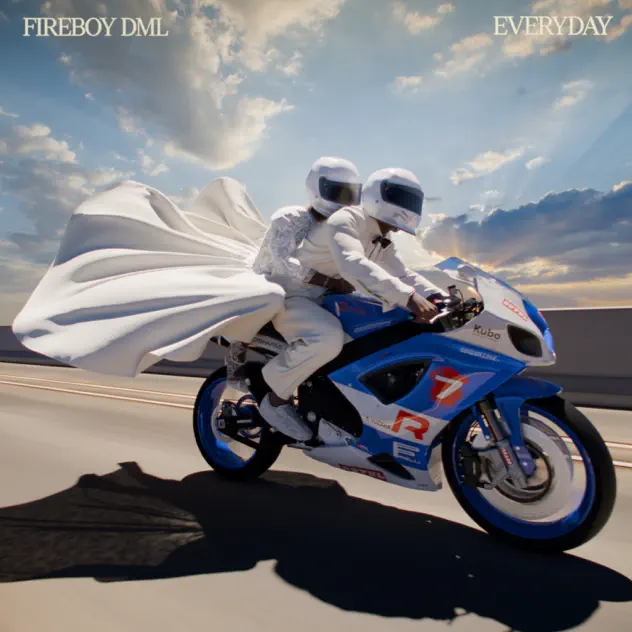Conflicted Destiny - Season 1 Episode 21
.jpg?w=900&ulb=true&ssl=1)
Conflicted Destiny - Season 1 Episode 21
The struggling was unrelenting…I endured and persevered, the forces and elements were against me but boy I was ready..but I digress, so lets get back to the story.
**********
Our fishing boat was on a dry dock and was supposed to head back out in three weeks. I was so excited, anticipating what it would be like to be at sea for thirty days doing nothing but fishing. All our supplies were loaded up and I got to meet the other crewmembers—pretty much the same guys who had been hustling with me at the fishing pier. Normally, the Greek fishermen didn’t use the same crew twice; they only contracted crews for one or two months. The makeup of the crew was usually Greek captains, Greek engineers, Ghanaian quartermasters, and guys like me from the pier.
The one concern I had about this trip was something I had been told earlier by one of my friends at the pier. He had said that most of the Greek fishermen in Liberia were homosexuals and they had the habit of raping some of the African crewmembers while they were at sea. Also, not all the deckhands actually worked on deck. The Greek captains normally would pick one of the deckhands to be their personal servant, and it was no secret that whoever was assigned this job would also provide sexual services to the Greeks on board. Georgie was a personal servant on the ship and the Greeks liked him a lot. It was said that he was sleeping with them.
I later learned that Papay was gay as well, and that Georgie was in a relationship with him, and then it dawned on me why Papay had been so upset that Georgie had brought me to stay with them. He must have thought Georgie had found himself a new lover. It also made sense to me why Papay was always cooking for us, not minding that we weren’t contributing anything, and called Georgie “my Pekin.” My friendship with Georgie didn’t change because of this knowledge, though, particularly because I never noticed any homosexual tendencies in him; instead, he talked about girls whenever we were together.
The pier continued to bustle with activity every day. There were lots of criminals in the facility; in fact, the port in general was a very dangerous place. There were frequent fights, and from time to time, someone would get stabbed to death. It didn’t take much to provoke these hustlers, most of whom were frustrated, homeless, and hungry. Most lived on the street and did all sorts of drugs and had weapons. I watched my back all the time and tried my best not to get into any form of altercation.
There were also women who sold food right outside the gate of the fishing pier—all sorts of Liberian dishes, mainly rice with assorted sauces: cassava leaf sauce, palm butter sauce, palava sauce, and my favorite, potato greens sauce. The food was cheap and most of the hustlers could afford it. A bowl of rice cost about fifty cents at that time. Some of these ladies also engaged in dubious activities with the hustlers, buying stolen fish and rice from them.
While I waited for our boat to get ready to go to sea, I continued to hustle like everyone else at the fishing pier. Most evenings I would take a walk along the abandoned pier; sit at the very end, and just gaze out, wondering when I would finally leave the shores of Africa behind. I sat on the same spot alone most of the time, listening to the calm sea. Many people defecated at that part of the pier because there were no functioning toilet facilities, but the smell bothered me very little. My quiet time at the abandoned pier also afforded me the opportunity to admire cargo ships. I would fantasize about being stowed away on one of the ships to Europe and always conclude that it would be sooner rather than later.
At the end of the third week, it was time for us to sail out on our one-month fishing adventure. Everyone was excited to come aboard that morning. I was finally about to make some real money and save most of it, because on the boat we wouldn’t have to pay for meals or lodging. Neither amounted to much—in fact, the accommodation on board was in deplorable condition. While the Greeks had their individual cabins, the rest of the crew had a tiny space with a few bunk beds in it. Nevertheless, I was happy about going on the trip.
Our boat undocked from the pier at 8 a.m. One hour into the trip, we were completely out in the open sea and the fishing nets were released into the water. The boat kept sailing slowly, and after another hour, the mechanical net release brought the huge fishing net back on deck, filled with all kinds of seafood including shrimp, snapper, and lobster. The deckhands guided the net to the deck, and we were organized in such a way that some of us were picking the shrimp and lobster, while others were picking assorted fish. Another group was designated to wash and package the fish, and the last group was responsible for storing all the packaged fish and shrimp in the cold storage below deck.
By early afternoon I became very seasick, but I didn’t know what it was since I had never been on a boat before. I thought it would pass, so I continued to work with my group, but it got worse by the minute. I started to vomit and thought I would throw up my lungs. My whole body shook. I had never been that sick in my life. My life started to flash before my eyes and I thought I was going to die. The captain was informed of my condition, but his only prescription was for me to drink salt water. After drinking it, I was allowed to lie down, but that didn’t help, either; the waves and the rocking of the boat made things worse. I didn’t know that a boat was supposed to rock while at sea. I remained restless, getting up every minute to throw up. My condition was deteriorating quickly, but I refused to give up. I prided myself on not being a quitter.
I was determined to stay on the boat, but by a couple of hours later, my condition was completely hopeless. I had to make a decision: stay stubborn and die on board or get back to shore, stay alive, and find another means by which to accomplish my objectives. There was no such thing as retreat in combat—only strategic moves to find another avenue of approach. With my condition at that time, it was a no-brainer. I wanted to live to fight another day.
I told the captain that I was done and that he had to get me back to shore. Everyone tried to convince me to stay because they couldn’t turn around just for me, but I demanded that they get me back to the pier.
Fortunately, as we argued, the quartermaster sighted a small boat approaching us, heading toward the shore. Immediately, he informed the captain and they signaled for the boat to come. As soon as the boat was close enough, the captain explained the situation and asked them to help get me back to shore. He also gave the boat owner some fish to compensate him for taking me. We took off and I didn’t look back. As soon as we arrived at the pier, I stepped onto solid ground and, instantaneously, the sickness disappeared. I was overjoyed to be back on dry land.
I went back to hustling like everyone else at the pier. I learned that my seasickness was probably only bound to happen on smaller boats, where you really feel the waves—the larger vessels rock far less—so it seemed that my stowaway idea was still viable. I continued to case the ships, searching for the right time and the right opportunity to sneak on board. However, I couldn’t do it alone. I had to have someone to go it with me since I wasn’t very familiar with the inside of ships. I had heard horrible stories about stowaways who had accidentally gotten crushed by logs as they tried to hide on log ships. I had also heard about people getting crushed by containers on cargo ships. And then there were others who had been caught by crewmembers of a particular Korean cargo ship; the Koreans, after brutally beating up the stowaways, had thrown them overboard. I chose to wait until I could find a partner who had experience and knew the safest place to hide on a ship.
A few weeks later, Georgie returned from the fishing trip. He had gotten paid, and by then, I too had saved a little money from my hustling. Georgie already had a lot of stowaway experience; he was once deported from Europe. He had gotten to Spain without being noticed and had successfully disembarked, but as he was exiting the port, security apprehended him and handed him over to the Spanish police, and he was repatriated to Liberia. I told him that we had to make a move together, but he kept urging me to have patience.
But my patience had already run out. Back in Nigeria I had crafted a backup plan: if for some reason I was unable to stow away, I would travel by land up to Morocco and try to get into Spain through Cueta, a Spanish territory in Morocco, or Tangier, where I could cross over to Gibraltar.
I told Georgie about my plan B and tried to convince him that it would work. I argued that since we had a little money saved, we should give it a try.
Georgie nodded and we agreed to leave immediately.
[ads4]
To Be Continued…

.png?w=300&ulb=true&ssl=1)
.jpg?w=300&ulb=true&ssl=1)
.jpg?w=300&ulb=true&ssl=1)



![The Victims (2024) [Chinese]](https://www.memesng.com/r/storage.waploaded.com/images/9b04d940a32a8abb23f9f46b6c9a5df8.jpg?w=50&ulb=true&ssl=1)


![The New Dragon Inn (2024) [Chinese]](https://www.memesng.com/r/storage.waploaded.com/images/1b40437714bc482e95be4a0f77c6e7ad.jpg?w=50&ulb=true&ssl=1)


![DJ Vibrant – No Gree [Birthday Edition] Mix](https://www.memesng.com/r/storage.waploaded.com/images/2cde3adbe7c885f1cfdaaeab7a01a9cd.jpg?w=50&ulb=true&ssl=1)


![Kehlani - After Hours [Video]](https://www.memesng.com/r/storage.waploaded.com/images/a9ec4d47566ea963a292e2e977e18337.jpg?w=50&ulb=true&ssl=1)
![Dave East, Mike & Keys ft. Stacy Barthe - SO MUCH CHANGED [Video]](https://www.memesng.com/r/storage.waploaded.com/images/c5e6f047b7c1666faae9c9043e93807b.jpg?w=50&ulb=true&ssl=1)


![Moneybagg Yo - TRYNA MAKE SURE [Video]](https://www.memesng.com/r/storage.waploaded.com/images/3032f799df78be164b89659c76c5a983.jpg?w=50&ulb=true&ssl=1)

![Tender Light (2024) [Chinese] (TV series)](https://www.memesng.com/r/storage.waploaded.com/images/fd1d124599bebaeab00aac83d20dced6.jpg?w=50&ulb=true&ssl=1)
![Regeneration (2024) [Chinese] (TV series)](https://www.memesng.com/r/storage.waploaded.com/images/3b0796cda903106146534bff88882934.jpg?w=50&ulb=true&ssl=1)

![Blood Free (2024) [Korean] (TV series)](https://www.memesng.com/r/storage.waploaded.com/images/949f6d188fdc2450c6a0043bcfb52786.jpg?w=50&ulb=true&ssl=1)
{{comment.anon_name ?? comment.full_name}}
{{timeAgo(comment.date_added)}}
{{comment.body}}
{{subComment.anon_name ?? subComment.full_name}}
{{timeAgo(subComment.date_added)}}
{{subComment.body}}